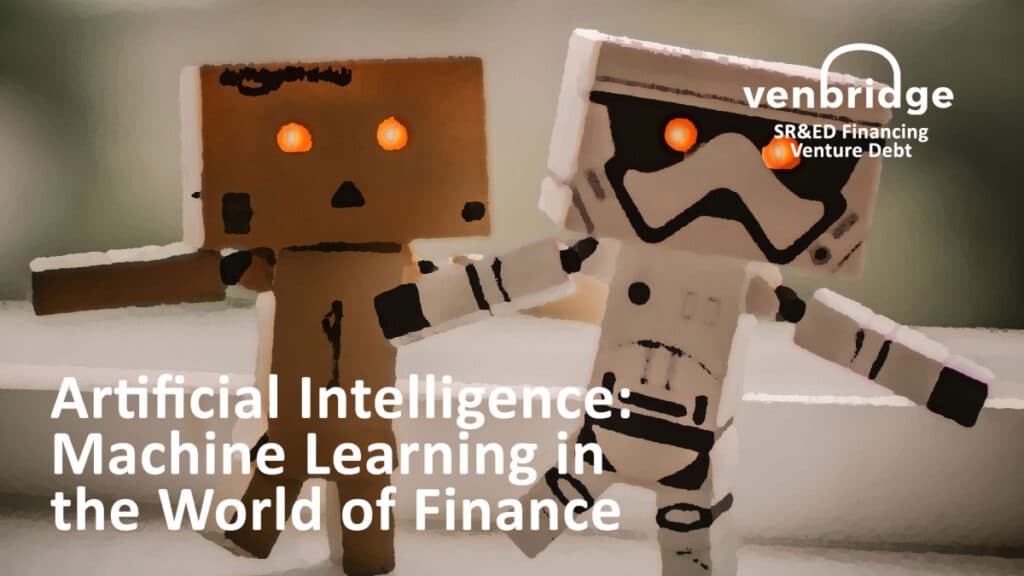What is machine learning?
In the most general terms, machine learning is a specialized branch of artificial intelligence mixed with the latest advancements in data science. It is a particular application of AI – a method of analyzing data that automates the building of analytical models. The basic principle of machine learning is that systems can learn from data, recognize patterns, and make decisions on their own without substantial human intervention. Machine learning is essentially about using statistical techniques and algorithmic design to develop computer programs that can learn from the data they generate. So without programming a computer to execute specific tasks, machine learning attempts to produce adaptable models capable of tweaking themselves independently. Just like human beings (ideally) learn from past experiences to improve their performance and make better decisions in the future, machine learning systems are supposed to learn how to adjust parameters to improve outcomes automatically. As a result, machine learning is forging major inroads in the financial services industry right now and applications of machine learning technology are becoming more and more common.
Why the renewed interest in machine learning now?
The term machine learning was coined in 1959 by Arthur Samuel, an American pioneer in the field of computer science. Back then, much of the emphasis was on building early computers to mimic human-like intelligence. Given that computer technology has come a long way since the late ‘50s, it goes without saying that machine learning today is a pretty different beast compared to the machine learning from over six decades ago. With growing volumes and varieties of available data and computer processing power as well as more affordable methods of data storage, there is a resurging interest in the field of machine learning.
The general requirements of good machine learning systems include efficient data preparation capabilities, basic or advanced algorithms, automation and iterative processes, scalability, and ensemble modelling. Today applications of machine learning can be found in diverse examples such as the innovative self-driving Google car, online recommendation offers and targeted marketing efforts on websites like Amazon and Netflix, services that enable businesses to track what customers and clients are saying about them on Twitter, and fraud detection among others.
What role does machine learning play in credit scoring?
Achieving a positive credit score is a long-term project for many consumers that demands a lot of time, discipline, and detailed financial planning. Everything from paying bills promptly, monitoring account balances closely, and keeping the number of open accounts and credit lines to a minimum are important steps along the way to ensuring a better financial future. Machine learning is becoming a prominent component of the credit reporting industry, drawing from the leaps and bounds in data science in the last several years.
Typically, lenders use three-digit consumer credit scores to help measure the creditworthiness of potential borrowers. These scores take many factors into account such as total debt, length of credit histories, and the consumer’s payment history when determining how likely a borrower is to be able to successfully pay back a loan. The traditional credit score model puts all the emphasis on past behaviour. This is where machine learning comes in. Instead of predicting the likelihood of timely repayment based on past credit behaviour, lenders using machine learning technology can look at how current behaviours are trending in the aggregate and predict future behaviour from there.
Things to look out for with machine learning applications in financial services
Machine learning techniques demand a lot of intense computational power and analysis. Because machine learning systems have a tendency to ‘overfit,’ or see causal links between attributes in the data that don’t actually exist, these systems require extensive testing over and over again to avoid having these incorrect causal links become baked into the model. When created with care and attention to these issues, machine learning techniques can offer the convenience of automation and the efficient innovation that goes along with it. This makes these models competitive alternatives to other sorts of current analytics capabilities.
Data security is another important factor in machine learning applications in the world of finance. Companies like Equifax use machine learning technology as part of their initiatives with big data in mortgage and auto lending. With reports now coming out about Equifax’s high-profile data breach of personal information a year ago, consumers are wise to insist on tighter data security in the credit reporting industry when their financial futures are at stake. As long as there are appropriate checks and balances in place, machine learning applications in the world of finance can mean exciting expansion for lenders and more options for borrowers.
Visit venbridge.com for more details on non-dilutive venture debt, SR&ED Financing, and tax credit consulting services. Venbridge’s services allow you to maximize your government tax incentives, better manage cash flow, and invest more in the areas you need. If you’re a blockchain startup, give us a call and we can help you with your SR&ED filing!
Venbridge
+1–833- 386–3632




